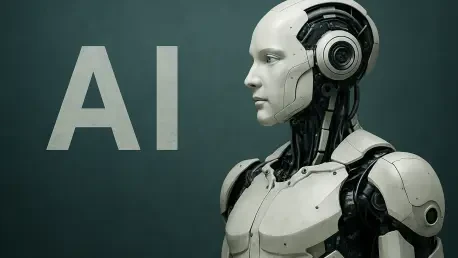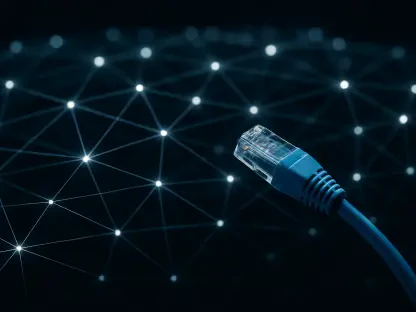Gaia’s recent $20 million funding milestone marks a pivotal chapter in its mission to revolutionize artificial intelligence through a decentralized framework. By securing this generous investment through seed and Series A rounds, Gaia is poised to challenge the status quo, diverting attention from conventional, centralized AI systems to a more distributed model. This transition leverages blockchain technology to disperse computational efforts across an extensive network of nodes rather than depending solely on monolithic corporate-controlled servers. As a consequence, Gaia’s approach not only enhances transparency but also fortifies data privacy, ownership, and detachment from potential censorship—a significant concern in today’s ecosystem where data misuse and centralized outages are becoming far too common. The company’s latest offering in this movement, the Gaia AI Phone, epitomizes the advantages of local data processing, shifting the focus toward user empowerment and systemic resilience.
Gaia AI Phone: A Leap Into Local Processing
Revolutionizing Privacy and Functionality
At the heart of Gaia’s decentralized vision is the Gaia AI Phone, which strategically employs the Galaxy S25 Edge hardware. This device heralds a new era in mobile technology by executing AI-based tasks directly on the user’s device, hence tightening privacy controls and reducing dependency on global internet connectivity. This leap in AI innovation ensures that personal information critical for functions like digital assistance and image recognition remains securely stored on the phone. The benefit is twofold, delivering both rapid response times due to minimal latency and enhanced privacy protection. While the implementation of local AI processing offers immense potential, it doesn’t come without its set of challenges. The most prominent of these is the hardware’s capability to handle complex AI computations effectively. Despite the strides made, educating consumers about its decentralization advantages remains a significant task for Gaia, which aims to bolster confidence in this advanced form of processing.
Addressing Technical Challenges and Consumer Education
Overcoming the technical limitations that accompany processing intensive AI tasks on mobile hardware remains one of Gaia’s principal challenges. Despite advances in chip processing capabilities, achieving levels on par with high-powered centralized servers is a formidable task. Furthermore, consumer adoption hinges on an understanding and appreciation of the benefits decentralization provides in practical scenarios. Educating users on how decentralization protects their data from breaches and misuses inherent in centralized systems remains a critical step for Gaia. However, capturing investor support showcases substantial faith in Gaia’s mission, setting the stage for significant strides in broadening their consumer base. Gaia’s distinctive position in the tech landscape rests not solely on its innovative model but also on its potential to redraw the boundaries of data management in AI. This shift promises not only enhanced security and control but also lays down a robust foundation for further technological progress.
Expanding an Open Ecosystem
Democratization of AI Development
With its recent $20 million capital acquisition, Gaia is concentrating efforts on scaling its open inference network and broadening access to its open-source AI application toolkit. This strategic direction is not just a technological advancement; it’s also an ethical commitment toward democratizing AI development. By opening doors for third-party developers, Gaia taps into a wealth of innovation potential on a wider scale, aligning with global concerns about privacy and data sovereignty. As users become increasingly concerned about unauthorized surveillance and data exploitation, Gaia’s transparency-focused model offers a timely response. Their approach dovetails with broader technological trends, including the rise of Web3 and privacy-centric solutions, signaling a profound shift in how user data is perceived and managed.
Building a Resilient Developer Community
The quest to establish an involved developer community around Gaia’s open-source toolkit is essential for its sustained success. Engaging with developers not only enhances the existing AI ecosystem but ensures adaptability and creativity in application design. However, achieving this requires navigating the hurdles of scalability and user adoption. The expanded use of Gaia’s blockchain-based infrastructure means creating a framework robust enough to support growth while maintaining data integrity. Developers, given the tools to invent and innovate, will play a crucial role in reinforcing Gaia’s position within a highly competitive market. Their contributions are vital to creating distinctive applications that illustrate the tangible benefits of decentralized AI. By nurturing this ecosystem, Gaia aspires to redefine the user experience, shifting from passive consumption to active involvement, where control of data and technology lies back in the hands of individual users.
A Decentralized Future
One of Gaia’s key challenges is overcoming the technical difficulties associated with managing intensive AI tasks using mobile hardware. Even though there have been improvements in chip processing power, matching the capabilities of high-powered centralized servers remains a daunting task. Additionally, widespread consumer adoption depends significantly on their understanding and valuing the advantages decentralization offers in real-world applications. Educating users on how decentralization safeguards data from the risks of breaches and misuse found in centralized systems is crucial for Gaia. Despite this hurdle, securing investor confidence demonstrates strong faith in Gaia’s strategic vision, paving the way for expanding its consumer reach. Gaia’s unique role within the tech landscape is built not only on its cutting-edge approach but also on its ability to redefine data management boundaries in AI. This approach promises increased security and user autonomy, and it establishes a solid base for further technological innovations.









